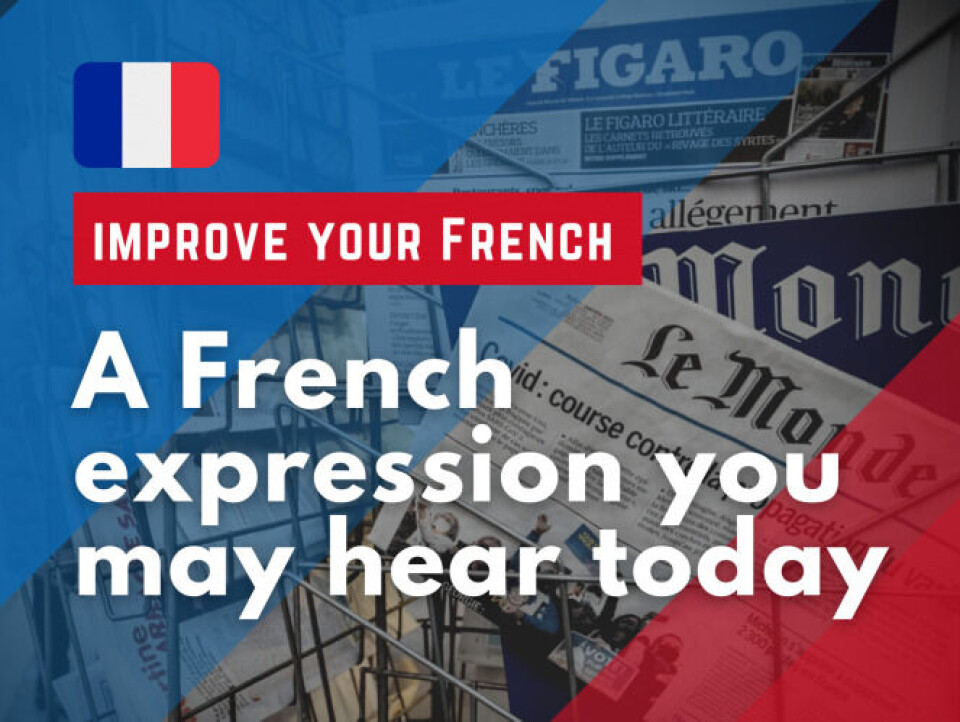-
Learning French: Have you ever dreamt in your target language?
From passive listening to active speaking, dreaming in French can indicate you are regularly practicing it
-
Learning French: what does fastoche mean and when should it be used?
Plus, can you guess the meaning behind more simple slang terms ending in -oche
-
Learning French: when and why do we say montrer patte blanche?
A French fairytale phrase for trustworthiness
‘En avoir ras-le-bol’ - A French expression you may hear today
Le Pen supporters are said to have ‘ras-le-bol’ with her… We look at what this means

With Éric Zemmour rumoured to announce his run for presidency in the upcoming weeks, Marine Le Pen may have to face the possibility of losing some of her supporters’ votes to the polemicist.
In fact, it has been reported that a surprising number of Rassemblement national (Far Right) supporters have had ‘ras-le-bol’ with Le Pen. Here, we look at what this means.
‘En avoir ras-le-bol’ is a somewhat vulgar way of saying you are fed up with or have had enough of something. The closest English equivalent, although much more restrained, might be ‘to be sick and tired of’.
To better understand the phrase, we must first break it down:
‘Ras’, in its adverbial form, means ‘very close’. This definition dates back to the 12th century.
‘Bol’, on the other hand, represents something much more crude. Although you will find it translated as ‘bowl’ in most dictionaries, in this expression it is slang for the anus.
‘Ras-le-bol’ therefore makes the connection to being full to the brim and unable to take any more of something.
Over time, there has been some confusion with regards to this phrase. Many people assume the ‘bol’ refers to a bowl or the head, perhaps making a connection with the expression ‘en avoir par-dessus la tête’.
Translated as ‘to have above the head’, the English equivalent of this might be ‘[to have] had it up to here with…’.
Therefore, as the vulgar origins of ‘en avoir ras-le bol’ remain largely unknown to most francophones, the phrase is regularly used in news headlines and articles across France.
There have been several variants of the expression, including ‘en avoir sa claque’ (Have had enough of).
Another common saying which evokes similar imagery of being pushed close to the tipping point is ‘c’est la goutte qui fait déborder le vase’.
Whilst the literal translation is ‘it’s the drop that makes the vase overflow’, a more popular English equivalent would be ‘it’s the straw that broke the camel’s back’.
Related articles
Faire son beurre: A French expression you may hear today
Les flics and what's a '22' alert got to do with the police?
7 French expressions to use when the weather is bad
























